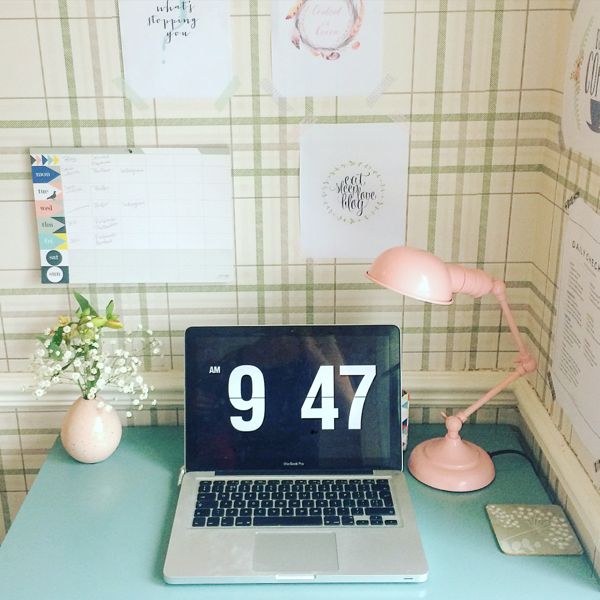
As a freelancer, time management is crucial to meeting deadlines and achieving success. In this article, we explore effective strategies for managing time while freelancing.
Working as a freelancer offers a huge amount of freedom and flexibility, allowing us to be our own bosses and work on projects we’re passionate about. However, this freedom also means that we have to be focused and utterly self-disciplined – and manage our time effectively. Time management is crucial to meeting deadlines, achieving success, and maintaining a healthy work-life balance.
Whether you’re looking for freelance artist vacancies or other freelance gigs, or you’re a seasoned freelancer, understanding the significance of time is key to unlocking your full earning potential. You can find remote freelance artist vacancies on Jooble and try working in a new field.
In this article, we teamed up with experts from job aggregator Jooble to explore effective strategies for managing your time as a freelancer.
1. Get Your Priorities Straight
Time is both your most valuable asset as well as being a finite resource. Don’t waste it. Effective time management starts with setting priorities. Without clear priorities, it’s easy to get lost in an avalanche of projects and commitments, leading to inefficiency and ultimately frustration. And prioritizing tasks isn’t just about creating a simple to-do list; it’s about allocating your time effectively. By understanding the time required for each task and the order of priority, you can maximiseproductivity, which allows you to make consistent progress without feeling bogged down or overwhelmed.
2. Create a Schedule
While the sound of flexible hours is appealing, a lack of structure can lead to overwork, inefficiency, and even burnout in the long run. Establishing a structured schedule can be helpful (think Excel). Allocate specific time blocks for different tasks. For example, actual work, prospecting for new work/clients, and administrative tasks.
3. Set Realistic Deadlines
As freelancers, we often juggle multiple projects with varying deadlines. Set realistic deadlines and communicate these deadlines clearly to your clients. Avoid taking on too much work and spreading yourself too thin. This can lead to substandard work and missed deadlines. Trust me, you don’t want to go there.
4. Use Time Tracking Tools
Time tracking tools can help you allocate your time effectively. These apps help you identify time-wasting activities, understand your peak productivity periods, and adjust your schedule accordingly. Another benefit of using a time-tracking app is that it will correctly calculate the time spent on each job and make sure you bill clients accurately. This will avoid losing out by undercharging for jobs.
5. Learn to Say No
As freelancers, we often face the temptation to take on every job that comes our way, especially after a lean period. However, saying yes to everything can lead to over-committing, unbridled stress – and very probably compromise the quality of the work.
Make sure you have enough time available to take on new work before committing yourself. Granted, turning down work goes against the grain of any freelancer worth their salt, and the money is great, but you don’t want to fall out with clients over botched work or missed deadlines. Being a successful freelancer is all about developing long-term relationships with valued clients. You don’t want to mess that up by grabbing every opportunity that comes your way when you know that you’re already under pressure time-wise.
6. Delegate and Outsource
If you feel like you’re drowning under an avalanche of work (most freelancers should be that lucky!) consider delegating or outsourcing work that can be handled by others. A good place to start is by delegating some of the grunt work like administrative tasks or accounts. You may even consider outsourcing certain aspects of your work to people you trust to get the job done. This will give you the time to focus on high-priority jobs.
7. Limit Distractions
Distractions are the enemy of effective time management. Take steps to minimize them (be ruthless). Most freelancers work from home, so make sure that your workspace is free from noise (TV, music) and other distractions (friends, family, pets). Work time is for work. Make sure that friends and family understand that just because you’re working from home, it doesn’t mean they can pop in for a chat whenever they feel like it. You don’t hang out at their place of work, so make sure they return the favour.
8. Timeout
Last but not least, don’t underestimate the importance of taking time out for yourself. Just because you’re a freelancer and work your own hours, it doesn’t mean you have to slave at it 24/7 – however tempting it may be to earn more money. Take time to go out, socialize with friends – and enjoy yourself! It’s called work-life balance and it’s important.
Final Thoughts
In my experience, freelancing is mainly about self-discipline. But to be successful it’s also about effective time management, knowing your priorities, and maintaining a healthy work-life balance. Remember, other than the work itself, time is your most valuable resource—use it wisely.


